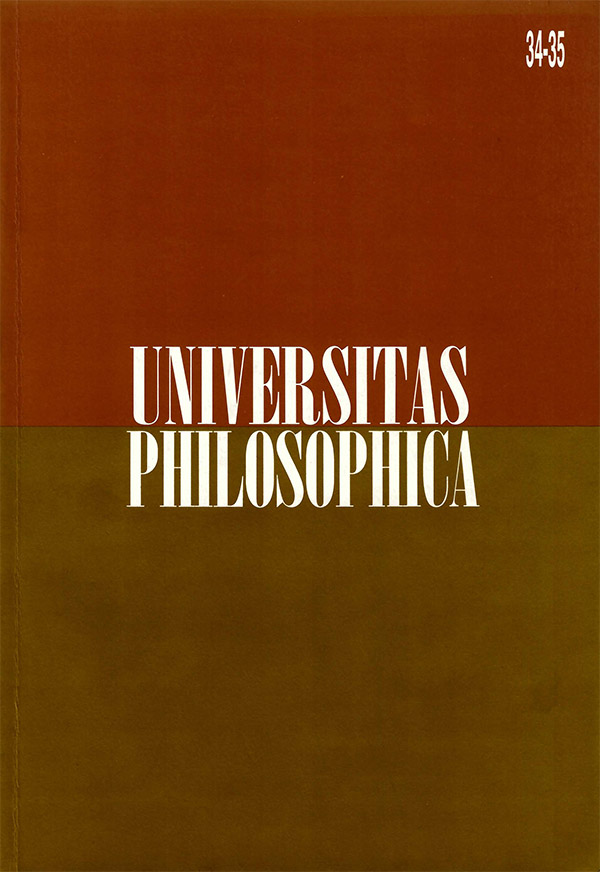Abstract
This text tries to show how Nietzsche, during the last stage of his philosophy is able to uovercome the metaphisical aestheticism of The Origine of tragedy and elaborates a new image of Dionysos all in al 1 a la Nietzsche, cleaned from all wagnerian and schopenhauerian traces. In this stage, art is thought no longer from the tension Apolo- Dionysos but from a totally dionysiac perspective; the opposition is now between Dionysos and the crucified, and implies a new comprehension of life's affirmation and the meaning of suffering. The Philosopher-Artist will be Dionysos' new image and the determination of a new classicism.
This journal is registered under a Creative Commons Attribution 4.0 International Public License. Thus, this work may be reproduced, distributed, and publicly shared in digital format, as long as the names of the authors and Pontificia Universidad Javeriana are acknowledged. Others are allowed to quote, adapt, transform, auto-archive, republish, and create based on this material, for any purpose (even commercial ones), provided the authorship is duly acknowledged, a link to the original work is provided, and it is specified if changes have been made. Pontificia Universidad Javeriana does not hold the rights of published works and the authors are solely responsible for the contents of their works; they keep the moral, intellectual, privacy, and publicity rights.
Approving the intervention of the work (review, copy-editing, translation, layout) and the following outreach, are granted through an use license and not through an assignment of rights. This means the journal and Pontificia Universidad Javeriana cannot be held responsible for any ethical malpractice by the authors. As a consequence of the protection granted by the use license, the journal is not required to publish recantations or modify information already published, unless the errata stems from the editorial management process. Publishing contents in this journal does not generate royalties for contributors.


